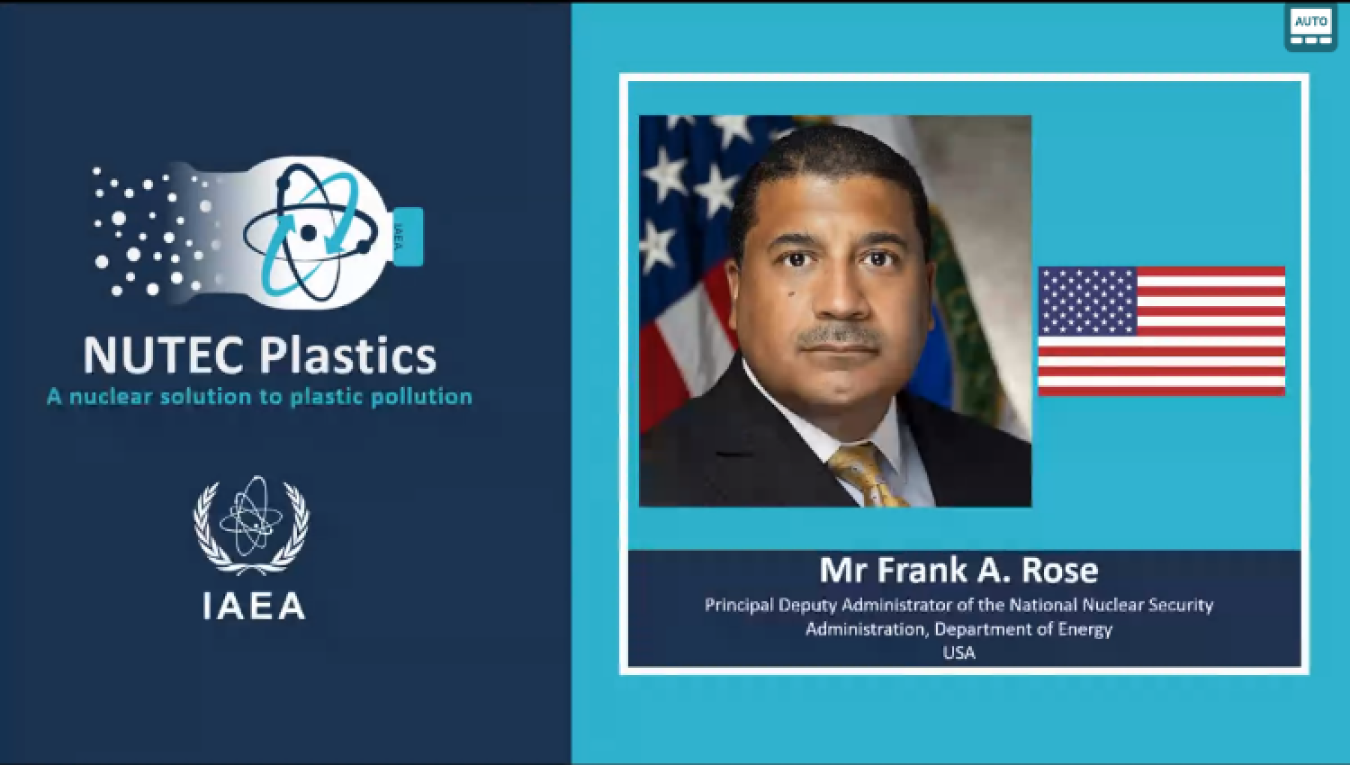NNSA will contribute $1 million to the International Atomic Energy Agency’s effort to combat plastic pollution with nuclear technology, Principal Deputy Administrator Frank Rose announced during a virtual roundtable last month.
National Nuclear Security Administration
September 9, 2021
NNSA will contribute $1 million to the International Atomic Energy Agency’s (IAEA’s) effort to combat plastic pollution with nuclear technology, Principal Deputy Administrator Frank Rose announced during a virtual roundtable last
NNSA is supporting projects that focus on the use of electron beam technology to advance plastic recycling. We see this as a mutually beneficial opportunity – a way to enhance radiological security and to reduce plastic pollution.
He spoke at IAEA’s NUclear TEChnology for Controlling Plastic Pollution (NUTEC Plastics) roundtable for the Americas and the Caribbean. Plastic pollution has been described as one the most pressing global environmental challenges and a direct threat to sustainable development. NNSA is joining its nuclear security mission and expertise with the important global efforts to support the environment.
“NNSA is supporting projects that focus on the use of electron beam technology to advance plastic recycling,” Rose said. “We see this as a mutually beneficial opportunity – a way to enhance radiological security and to reduce plastic pollution.”
NUTEC Plastics supports research on using electron beam technology to address plastic pollution in the ocean. Through its Office of Radiological Security, NNSA encourages the use of non-radioisotopic alternative technologies to permanently reduce the security risks posed by high activity radiological sources.
Electron beam technology, which relies on electricity rather than radioisotopes to generate radiation, could improve current plastic recycling processes and break the particles down, keeping them out of the food chain.
“If irradiation can indeed be used to recycle plastics safely, efficiently, and effectively, NUTEC Plastics would be a very strong demonstration of the benefits of peaceful uses of nuclear technology,” Rose said.
The Principal Deputy Administrator also touched on climate change during his remarks. Like plastic pollution, he said, climate change affects all of us, he said.
“It has gone from being a single issue concerning our environment to now affecting the advancement of societies and survival of people around the world,” Rose said. “Secretary of Energy Granholm strongly believes the way to effectively combat climate change requires global adoption and application of innovative nuclear science and technology.”

